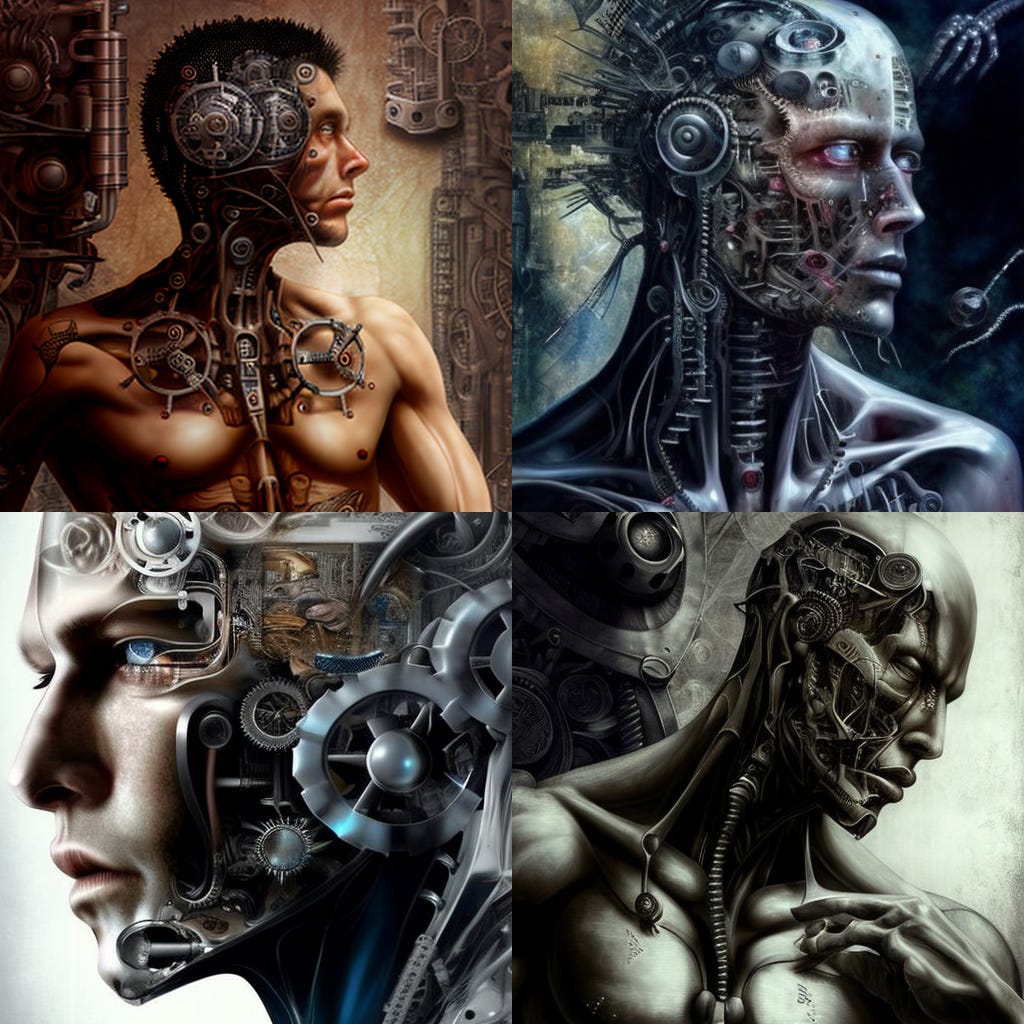The Future Belongs to Centaurs
Many people are convinced it's just a matter of time before computers take over the human race. Others think human creativity and ingenuity are irreplaceable. Perhaps both are correct.
In 1997, an algorithm beat the reigning grandmaster, Garry Kasparov, in a game of chess. This marked a significant shift in how people understood computers. Artificial Intelligence (AI) was thriving in domains we previously thought only a person could.
Since then, algorithms have taken supremacy over us across many different games. Everything from Jeopardy!, to AlphaGo, to video games such as Starcraft. And people are concerned. When is AI going to make the leap from beating us in games, to dominating us in fields like economics, law and goverance? And will we be made redundant when these hyperintelligent machines take over? Thousands of jobs may have already disappeared from the rapid rise of GPT3+ and Diffusion models at the end of 2022. Even language and art can be engineered.
Since Kasparov's pivotal chess loss in 1997, he has driven research about a new form of chess, where humans and machines would co-operate, rather than compete. He named this "advanced chess”. The study proved that humans paired with algorithms are able to best algorithms on their own.
As part of the research, in 2002, another supercomputer designed to play chess was launched. It was called Hydra, and worked similarly to Deep Blue. It was able to evaluate about 150,000,000 chess positions per second. Kasparov, who was known for his ability to calculate moves far in advance of his opponents, was able to calculate only a dozen at the most. The advantage seems to be in favour of the computer. It's certainly what beat him in 1997. Except that the computer's only advantage over Garry is its tactics, and not strategy.
Tactics are short combinations of moves. Computers can calculate so many more moves ahead of us, but they can't always come up with the best strategy. Strategy is the highly abstract, big-picture element of the game. Despite how advanced AI is today, we are still the champions of strategic thinking. And despite how powerful their hardware are, computers have a limit on how many moves they can calculate in advance. A good strategy from an experienced human chess player can narrow down these ranges and find winning moves in tractable time.
In the tournament against Hydra in 2002, participants had to face the supercomputer in a game of chess. They were paired up with software, which could calculate moves in advance and alert the players as to what the most likely outcome was. This left the player to think of the grand, over-arching moves and play-styles that would allow them to outmanoeuvre their opponents and win. The human-computer hybrids were known as Centaurs. Over the tournament, the Centaurs were able to slay Hydra and all of its many calculating heads, winning in a landslide, despite the supercomputer having the tactical advantage.
AI as it exists today is just a tool. Most of what people think of as AI is really just statistical modelling, based off methods that have been around for decades and in some case, even centuries. AI has tremendous value, able to perform tasks such as diagnosing disease, recognizing images and detecting emotion in language, but when it comes to eclectic, complicated and highly-abstract problems, humans are still untouchable. For the time being, anyway.
Most of this article was inspired from David Epstein's Range. If this was interesting, I highly recommend checking out his book and other works.



